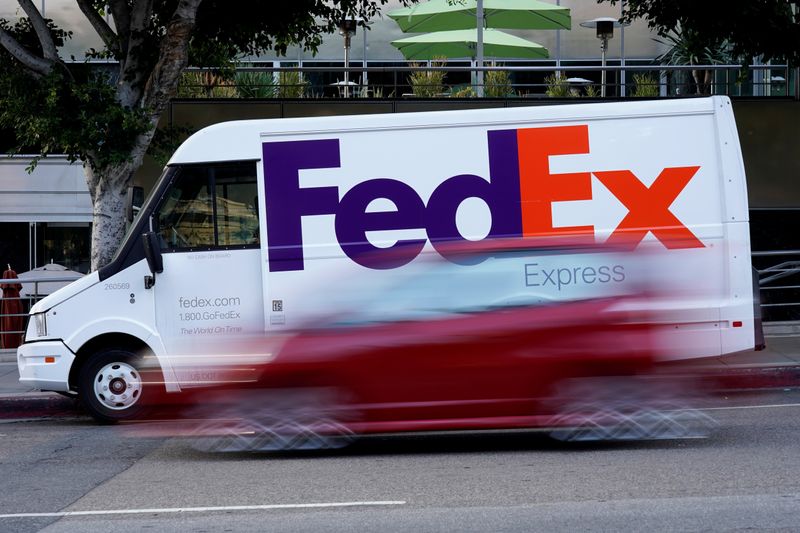By Lisa Baertlein and Rachit Vats
(Reuters) - FedEx Corp (N:FDX) shares tumbled more than 10% on Wednesday after the company slashed its 2020 profit forecast a second time, as it revamps its business to replace slumping air shipments with lower-profit residential deliveries.
FedEx stock has shed nearly half of its value since January 2018, when it hit an all-time high of $274.32. The U.S.-China trade war has hit the company, as has its costly and overdue integration of its European TNT Express acquisition and its breakup this summer with customer-turned-rival Amazon.com Inc (O:AMZN).
At least six analysts cut FedEx's price target, unswayed by executives' assertion that the business had bottomed and would improve substantially before the fiscal year ends in May 2020.
"After a string of disappointments over the last 13 months, the burden of proof is on management," Susquehanna analyst Bascome Majors said in a note.
FedEx shares were the biggest drag on the Dow Jones Transportation index (DJT), which was down 0.9%, and rival United Parcel Service Inc (N:UPS) fell 1.8%.
FedEx lowered its fiscal 2020 forecast by roughly 9%, citing costs related to launching seven-day delivery, lost revenue from its split with the world's top online retailer and the ongoing U.S-China trade standoff that has roiled global trade.
Internal missteps and the worst air cargo slump since the financial crisis slammed second-quarter profits in the Memphis-based company's mainstay Express unit that caters largely to businesses seeking speedy deliveries.
Executives, who are parking planes and restricting hiring to compensate, said FedEx's troubled TNT Express integration was still two years from completion.
The company's bid to capture surging e-commerce shipments with the addition of year-round Sunday deliveries cost more than expected in the latest quarter. This resulted in a year-over-year drop in FedEx Ground's adjusted operating profit that unit chief Henry Maier dubbed "horrific" on a conference call with analysts.
FedEx Ground expects to wring out more residential profit by shifting the delivery of millions of SmartPost packages from U.S. Postal Service mail carriers to its own drivers. The goal is to reduce costs by increasing the number of parcels dropped at every stop, but analysts noted that profits on those packages are razor thin.
Bernstein analyst David Vernon did not rule out further forecast reductions.

"Things are bad, but it's not clear that the floor is in yet," Vernon said.